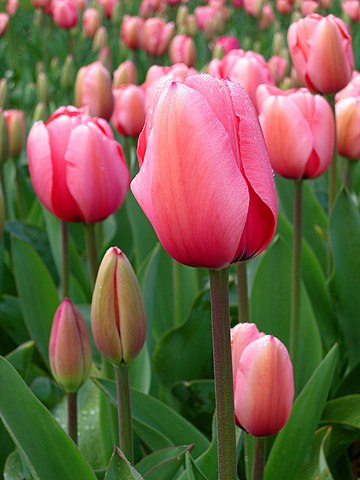 By Tmax1998 - Own work, CC BY-SA 4.0, https://commons.wikimedia.org/w/index.php?curid=90832706 By Tmax1998 - Own work, CC BY-SA 4.0, https://commons.wikimedia.org/w/index.php?curid=90832706 We will broadcast the UCC Rocky Mountain Conference worship service this Sunday morning, August 2, in lieu of our regular streaming worship time. As such, our sanctuary will be quite devoid of music to speak of in this weekly space! So I thought I would muse a bit about our Midweek Vespers Services streamed on Wednesdays at 7:00 p.m. So what is Vespers and why are we offering it? Vespers is an ancient service, the penultimate service of the seven canonical hours within the monastic Daily Offices. Vesper in Latin literally means "evening." In this time of pandemic, we thought we would offer a midweek prayerful service for rejuvenation and healing as the day draws to a close. A service of comfort and hope. A reminder of the eternal Light in the darkness. Vespers at Plymouth is quite diverse. Chants or hymns are sung interspersed with prayers, poems, and scripture. Musically, one can expect a broad range of contemplative styles drawing from the Celtic, Ionian, Anglican, and Taizé traditions with touches of jazz, folk, and minimalist influences. Those who have attended the 6:00 p.m. services will often find many similarities, including the regular use of the sung "Prayer of Jesus" by John Philip Newell. So consider joining us in this Quiet Place next week. The archives on our website offer the opportunity to view past services as well at your convenience. In Quiet Joy.
0 Comments
 By yomi955 from Kyoto - Flickr, CC BY 2.0, https://commons.wikimedia.org/w/index.php?curid=2652457 By yomi955 from Kyoto - Flickr, CC BY 2.0, https://commons.wikimedia.org/w/index.php?curid=2652457 A lovely breakfast on a hazy Sunday morn: sunny-side up...gratitude to God. The well-known hymn "Beautiful Savior" undergoes a contemporary reading via an arrangement by organ virtuoso Gerre Hancock. Beginning with ethereal lush harmonies, the tune emerges quietly from the texture evolving to a wonderfully dissonant musical tapestry before settling into the gentle conclusion. The hymn tune "Deo Gracias" (Thanks to God) closes the service in a grand British-style setting by Healey Willan. Violinist Amy Welsh offers an excerpt from movement 1 of Edvard Grieg's "Sonata No. 1 in F Major." Composed in 1865, Norwegian composer Gerhard Schjelderup described the sonata as "the work of a youth who has seen only the sunny side of life."  By Kannanshanmugam,shanmugam studio,Kollam - Own work, CC BY-SA 3.0, https://commons.wikimedia.org/w/index.php?curid=16356760 By Kannanshanmugam,shanmugam studio,Kollam - Own work, CC BY-SA 3.0, https://commons.wikimedia.org/w/index.php?curid=16356760 This Sunday bears the informal distinction of being the "6:00 p.m. at 10:00 a.m." service where the spiritual dimensions of "Saturday night music and Sunday morning music" (the sacred and seemingly secular) are experienced and explored. Guitarist Alan Skowron and bassist Peter Strening join cantor Blair Carpenter and I for this joyful worship time together. The Beatles' "All You Need Is Love" was composed by John Lennon and Paul McCartney for the 1967 "One World" live international satellite telecast, the first of its kind. The lyrics were intentionally simplistic to appeal to the international audience of over 400 million from 25 countries. "Love bade me welcome, yet my soul drew back" - George Herbert We sing a selection from the Compassion Camp catalogue, "Come to the Table." Accompanied by a Latin groove, this message of hope and acceptance greets us all...even a long-lost prodigal son! "Come to the table...we are all welcome...come, celebrate with us." - Amanda Meisenheimer We "Take Five" for the Musical Offering with the classic jazz standard by Paul Desmond of the Dave Brubeck Quartet. David Bowie's "Heroes," the title track from his 1977 album, resurfaced as an anthem in 2001 following the September 11 attack. Likewise in this time of pandemic, the song has been used to honor front line medical workers around the world. "We can be heroes, just for one day." - David Bowie Trust the seeds, although they lie in darkness, Stirring beyond your watchful eye. Though they may not flower as you dreamed they would, When the planting's over you must trust the seeds. - from "Trust the Seeds" by Elizabeth Alexander  By W.carter - Own work, CC0, https://commons.wikimedia.org/w/index.php?curid=88921315 By W.carter - Own work, CC0, https://commons.wikimedia.org/w/index.php?curid=88921315 A lively and spirited arrangement of the hymn "Almighty God, Your Word Is Cast" by Stephen Johnson begins morning worship. Set in the asymmetrical meter of 5/8 (1-2-3-1-2, 1-2-3-1-2), the setting joyfully dances through imaginative maneuvers before ending definitively on two long chords: "Almighty God, your Word is cast like seed into the ground; Now let the dew of heaven descend and righteous fruits abound." A stately rendering of "Christ Is Made the Sure Foundation" by Paul Manz closes the service on a note of grandeur. Set to the tune Westminster Abbey, composed by 17th century English composer Henry Purcell, the ancient Latin text speaks to Christ as the seed of righteousness in our souls: "Christ is made the sure foundation, Christ the head and cornerstone..." A few jigs and a reel. Traditional Celtic tunes from the pastoral vistas of the British Isles. Violinist Harmony Tucker joins us for the Musical Offering.  By John O'Neill - Taken by John O'NeillEdited and uploaded on his behalf by Fir0002, CC BY-SA 3.0, https://commons.wikimedia.org/w/index.php?curid=767393 By John O'Neill - Taken by John O'NeillEdited and uploaded on his behalf by Fir0002, CC BY-SA 3.0, https://commons.wikimedia.org/w/index.php?curid=767393 Two hybrid works of genre and musical era. An ode to flowers: the "poetry of Christ." The tried-and-true Baroque chorale prelude receives a jazz/gospel veneer in William Bolcom's "Jesus Calls Us; O'er the Tumult" from Gospel Preludes. The melody of this 19th century hymn of invitation soars above the jazz-inflected accompaniment on the hoary Cornet stop combination. The recognizable toccata form has been in use since the late Renaissance. Italian for "to touch," it is characterized by rapid or continuous motion meant to display the performer's technique. Organist Hans-André Stamm offers a toccata on the 17th century German chorale "Lobe den Herren, meine Seele" (Praise the Lord, My Soul) but with a distinct Latin pulse in the left hand and pedal. A lively and spicy finish to Sunday worship! Benjamin Britten composed his well known cantata Rejoice in the Lamb in 1943. Culled from the 18th century poem Jubilate Agno by poet Christopher Smart, the texts reveal an unbalanced yet deeply religious man. Written in part while confined in an asylum, Smart relates how the entirety of creation praises God by simply being true to its own nature. Cantor Lucas Jackson offers the tenor solo "For the Flowers Are Great Blessings" from this work during the Musical Offering. A leisurely yet tender tribute to nature's expression of the divine: For the flowers are great blessings...For there is a language of flowers. For the flowers are peculiarly the poetry of Christ. |
Details
|

 RSS Feed
RSS Feed